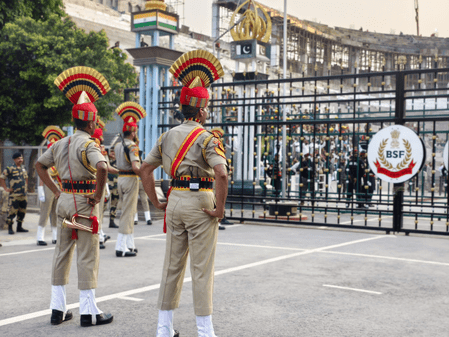Deepika Bhan
New Delhi, June 15 (IANS): There’s a question that haunts not just citizens of conflict-ridden regions but every concerned global citizen: Why are neighbours always so terrible?
Across the world, relationships between many bordering nations are marked more by mistrust and enmity than cooperation and peace. From Russia’s ongoing war with Ukraine to the complex, ever-flammable Middle East crisis involving Israel, Palestine, Iran, Yemen and others, and back to the subcontinent where India and Pakistan remain locked in a hot-and-cold conflict — tension is always simmering.
Why is it so hard for countries to be civilised neighbours?
The answer, of course, isn’t simple. Global diplomacy is layered and politically charged. History, identity, borders drawn in haste, and the scars of colonialism have left deep wounds. The role of religion and ideology often worsens these divides. But somewhere in this maze, a disturbing truth exists: some nations choose confrontation not just as a reaction but as a core part of their identity.
Take, for instance, Pakistan. Since its inception on August 14, 1947, it has fashioned its national identity in opposition to India. From the very moment it emerged as a separate country — born of the violent partition of the subcontinent — it has behaved not like a neighbour wanting peaceful coexistence but like a rival consumed by bitterness. Its obsession with the two-nation theory and religious identity has driven its politics into a perpetual state of hostility.
The pattern of aggression was set early. From sending tribal raiders to annexe Kashmir immediately after Independence to initiating multiple wars in 1947, 1965, 1971 and 1999 — and later, cross-border terrorism in the 1990s — Pakistan has ticked every box on the “how to be a bad neighbour” checklist. And while its political leaders often mouth the language of peace, the control lies firmly with its military establishment, which believes that hostility with India is a means of staying in power.
When the Pakistani Army Chief made a communal statement targeting Hindus and Muslims — and the April 22 Pahalgam terror attack quickly followed it — it became clear how deep this rot goes. The attack wasn’t just another episode of terrorism; it was a loud signal that the facade of deniability was being dropped. Pakistan, which had long pretended not to shelter terrorist elements, is now owning them openly.
The pictures and video clips of its army’s top brass attending the funerals of terrorists killed in Operation Sindoor and being given state honours exposed Pakistan’s duality. It has made known to the world that terrorists are part of its extended infrastructure. The political class and the army-led establishment appear more interested in building nurseries for extremists than investing in schools and hospitals.
According to World Bank data, nearly 45 per cent of Pakistan’s population lives in poverty, with 16.5 per cent classified as living in extreme poverty. The economy is on life support, dependent on IMF bailouts every few years. Yet the country continues to funnel money and manpower into terror factories rather than development.
For over three decades, Pakistan has cultivated a shadow war strategy against India — arming, funding, and sheltering terrorist networks while maintaining plausible deniability on global platforms. The 26/11 Mumbai attacks, perhaps the darkest chapter in modern Indian history, still haven’t seen justice delivered because of Pakistan’s consistent stonewalling and dishonesty.
But the rules are changing now. The April 22 attack in Pahalgam seems to have been the final straw. India has made it clear that such provocations will no longer go unanswered. Operation Sindoor, India’s military response, signals a turning point. The gloves are off.
In a broader context, this isn’t just about India and Pakistan. It’s about how nations perceive power, identity and survival in an increasingly polarised world. Russia sees Ukraine’s alignment with the West as a threat. Israel, locked in an existential struggle, responds with overwhelming force while its adversaries dig deeper into cycles of extremism.
In each of these relationships, grievance and retaliation feed off each other, leaving little room for dialogue.
For Pakistan, the opportunity to reset relations with India has come and gone several times. But as long as its army runs foreign policy and its politics remain trapped in identity warfare, things are unlikely to change.
And no one knows what the next flashpoint will be — Ukraine-Russia, Israel-Hamas, Israel-Iran, or another unanticipated corner of the globe.
India’s decision to halt Operation Sindoor while keeping Pakistan in a state of strategic uncertainty was calculated. The neighbour is silent for now, but covert efforts to foment unrest in Jammu and Kashmir continue. Indian forces have been actively thwarting infiltration attempts along the Line of Control.
Despite being on notice, the sad reality persists: some neighbours seem determined to remain terrible.





